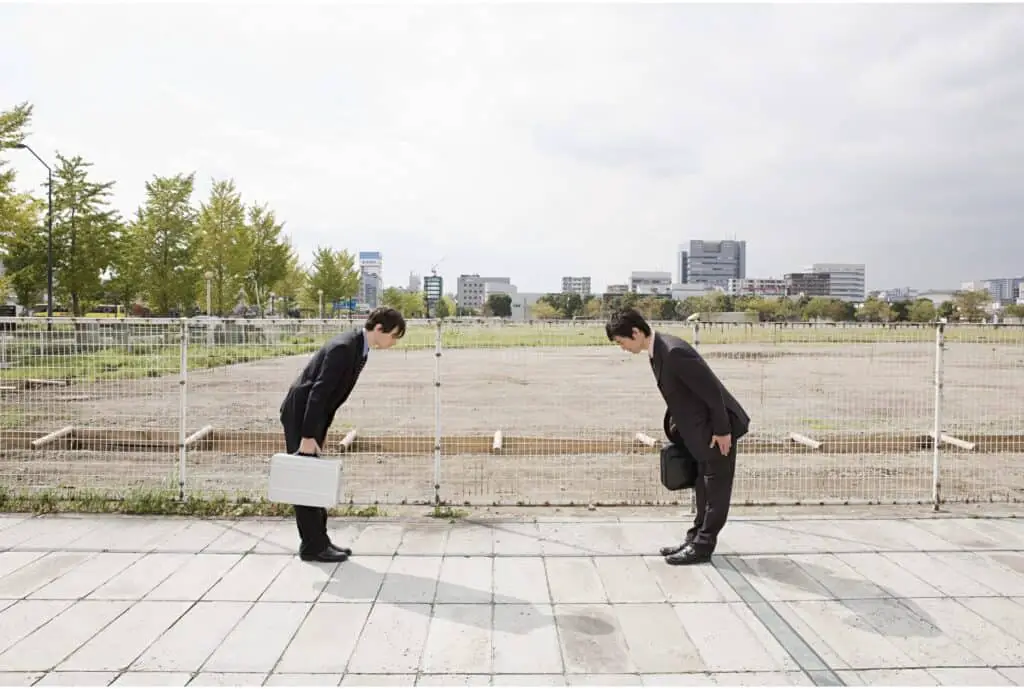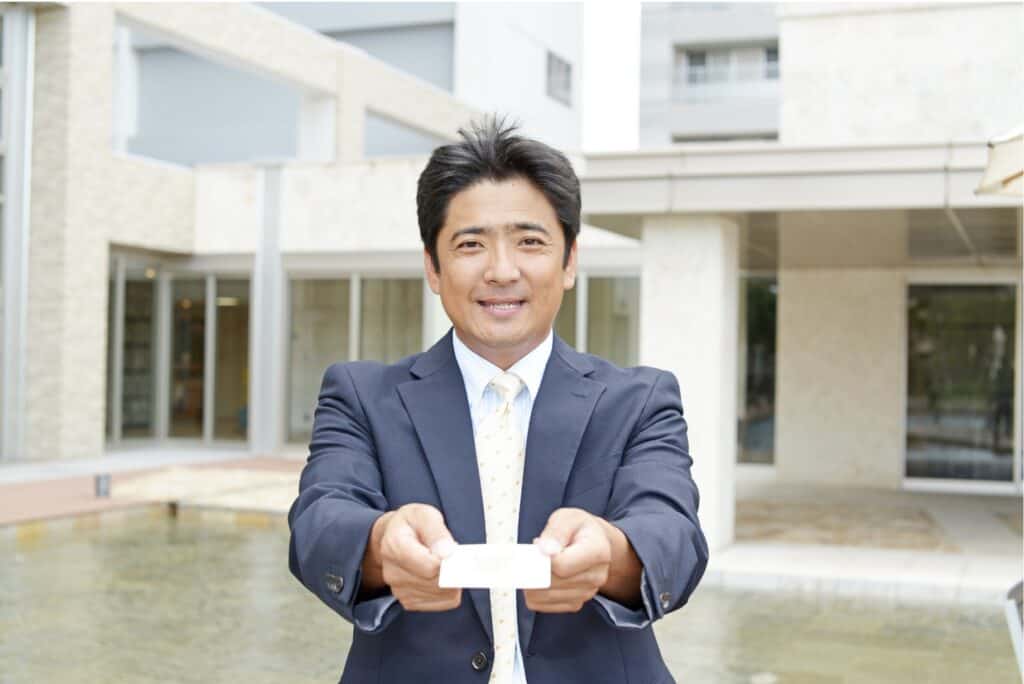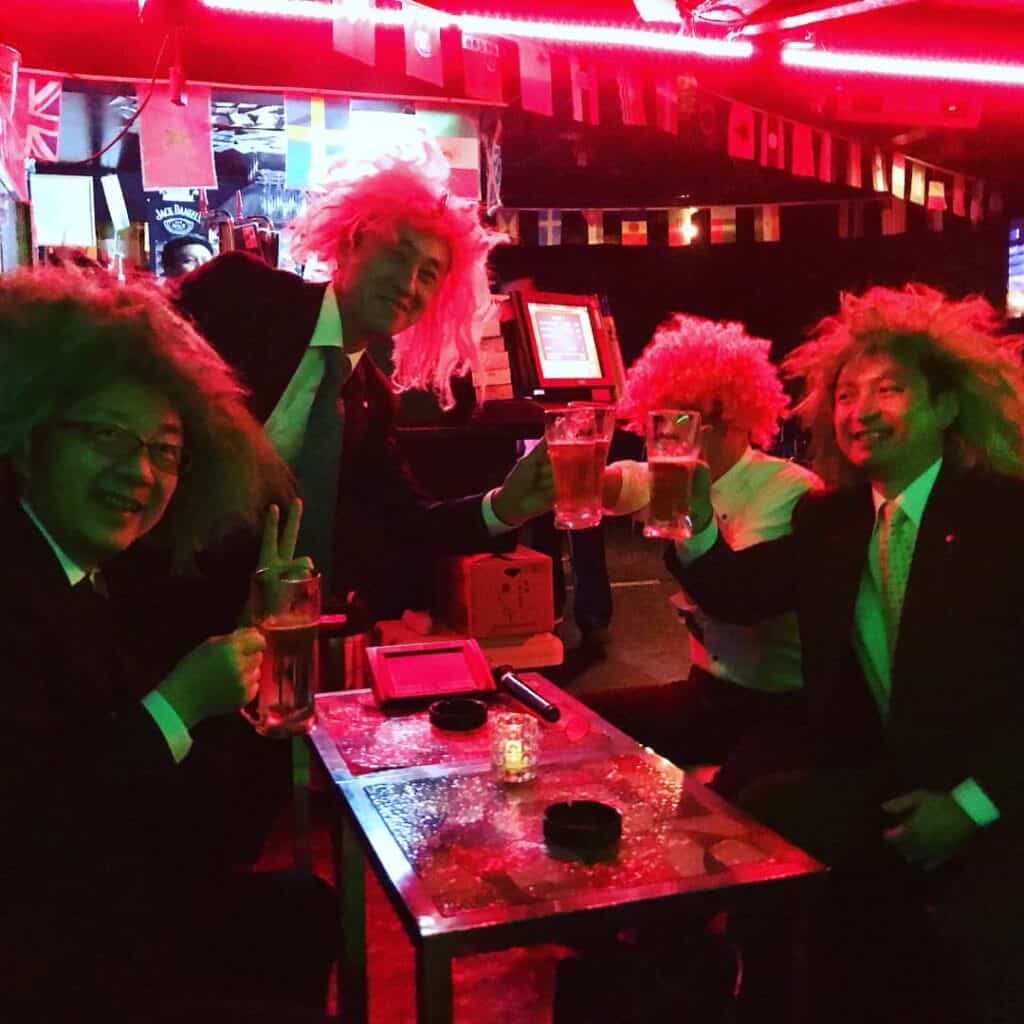If you’re thinking of expanding into Japan or simply want to apply some Japanese techniques to your own business then there are a few things to know. Japan is home to a polite society that values collectivism, professionality and structure. To perfect your dealings in business, take a few minutes to learn about Japanese society and traditions as they relate to business.
Business culture in Japan is very formal, requiring you to dress conservatively and act with humility. Relationships are highly valued, so building trust is very important.
Etiquette and cultural elements can ultimately decide whether your Japanese counterpart will do business with you. This article will lay out the dos and don’ts of business in Japan.


Business Cards (Meishi)
Not only is it polite, but learning about cultural differences shows a level of worldliness. By putting these things into practice, it displays a genuine consideration for others and respect for your potential business partners. This will go a long way to impress the Japanese.
It’s easy to believe that how you conduct business at home is similar to how business is conducted worldwide. However, that isn’t always the case and by not observing the rules if Japanese business you can end up shooting yourself in the foot. Thankfully Japanese business protocol is easy to understand.
One of the more important things to remember during your first meeting with Japanese business professionals is the Meishi. Commonly known in the west as a business card, they’re highly valued in Japanese business culture. They act as an extension of the individual and should be treated as such.

How you treat the business card will display your level of respect for the person whose card it is. Therefore it is incredibly important to observe etiquette rules to avoid insulting someone.
If the business card is offered to you while you are standing, accept it with both hands. Give a slight bow, read it and then place gently in your business cardholder. Do not place the card directly into your pocket as this would be seen as disrespectful.
If you are sitting down when the card is offered to you it would be good manners to place the card on the table in front of you. Arrange the cards so that the senior member’s card is at the top and their subordinates are underneath or to the left.
When presenting your business card you must do so with two hands. Do not slide a card over to someone, get up and walk over to them.
Gift Exchange
At some business meetings, especially at the first meeting, small gifts might be exchanged. This is considered a very important part of business culture in Japan. The ritual of gift-giving is more important than the contents of the gift, however, there are things that should be avoided altogether.
Potted plants are a no go gift as there are related to negative superstitions. When it comes to flowers, you must avoid the color white and any flowers associated with death. Something like lotus blossoms will not be warmly received.
As with the number 13 is considered unlucky in some cultures, in Japan it is the number 4 that is thought to be unlucky. This is because the number 4 is pronounced shi, the word for death in Japanese. For this reason, you should avoid gift sets of four.
However, gifts are warmly received no matter what they are outside of those rules. If you are presented with a gift, be sure to present one in return. It is considered lucky to have presents in pairs.
When a gift is offered to you it is courteous to modestly refuse it twice before accepting it. Do not open the gift in front of your counterparts. It is good etiquette to open the gift in private to avoid ‘loss of face’ if you find the gift disappointing.
If multiple persons are attending the meetings then you should have a gift for each of them. It would be offensive to only give a gift to one person when other people are in attendance. Also, make sure to give gifts appropriate to the person’s rank.
For example, giving the same gift to the senior person and their subordinates would be a mistake. This gift goes some way to display respect to the other person so the gift should be in tune with their ranking.
Some good ideas for gifts including frozen steaks, foreign or prestigious brands, pen sets or commemorative photographs are all excellent choices.
Interested to know more about Japanese culture? Read also :
– 5 Surprising Ways Japanese Culture Has Changed
– Japanese Culture For Kids
– What Makes Japanese Culture Unique
– Are Dragons In Japanese Culture?
– What Is Japanese Culture Known For?
– Japanese Culture For Tourists – What To Know Before You Go
– How Japanese Culture Influenced America
– How Japanese Culture Changed After World War II
– Japanese Work Ethic – Why Japan Has Such A Great Work Ethic
The Art of the Bow

Bowing is an integral part of business meetings in Japan, as well as everyday life. It is a show of respect to bow to those who are your senior. It would typically be the junior person who would initiate the bow.
It might seem more natural for you to greet someone in a professional setting with a handshake. However, this should be avoided as the Japanese don’t tend to enjoy handshakes. Some Japanese business people can feel so uncomfortable with handshakes that they would avoid meeting you again.
When greeting a group of Japanese businessmen, you should greet and bow to the highest status individual first. Swiftly followed by the oldest person in the company. Age plays a very important part of the Japanese business ecosystem.
Do not hold eye contact as you bow as this could come across slightly aggressive. Eye contact is held by martial arts competitors and should be saved for that.
When you initiate the bow, you would do so by bending at your waist to an angle between 30 degrees and 45 degrees. You should keep your hands by your sides throughout. The senior person will then acknowledge your bow by bowing to around 15-degree angle.
The easiest way to remember is that the person with the more junior position should be the one to bow lower. This is a sign of respect and acknowledgement of the person’s higher status. This simple act can go great lengths to building trust and rapport with your Japanese counterpart.
Hierarchy underpins many facets of Japanese culture, including business. Social interactions are affected by age and status, so it is worth being mindful of this. Japanese people are most comfortable when they are interacting with someone who is their equal.
Things that affect a person’s status include what their role is, who they work for, where did they study and are they married. As well as their age, you should consider their status as well.
Age usually means a more senior position, although this is not always the case. Japan is known for having older executives when compared to other countries. And older executives should be treated with more marked deference than younger executives.
Names
When you refer to someone you should observe the rules of etiquette. You should not refer to someone by their given name until you are expressly given permission to.
You should use someone’s formal title and their family name if you are going to refer to them. For example, you would refer to them as Mr or Mrs Tetsuya. Even better, observe Japanese formality and refer to them as Tetsuya-san.
In Japan the family name comes first, it is then followed by the given name. So if someone is introduced to you as Tetsuya Hiroshi, then Hiroshi is the given name. Tetsuya is the family name and you would refer to them as Tetsuya-san.

San is similar to Mr or Mrs used in western cultures but differs in that it is genderless and more versatile. It can also be used with the family name or the given name, but remember to use the family name until instructed otherwise.
When referring to yourself you should avoid using san. That should be reserved for when you are referring to someone else.
Since Japan has a very relationship-oriented business culture, you should observe these formalities to build trust and rapport. The Japanese prefer to do business with people that they trust and know. Whilst business meetings are important and should be treated formally, a lot of the bonding and trust-building can occur outside the boardroom.
Relationships can be formed at more informal social gatherings, such as karaoke, an ochaya (tea house) or izakaya (gastro-pub) and often involve a lot of eating and drinking.
Building relationships is a crucial part of doing business with the Japanese. By demonstrating your knowledge and understanding of Japanese business etiquette you are showing your civility and flexibility. Your Japanese business partners will appreciate the efforts you have made.
It can be the difference between doing business together or not. Japanese business culture is certainly different from standard western culture. However, it’s easy enough to navigate as long as you remember your manners, act with respect and understand levels of seniority.
If you are being hosted in Japan, make sure to praise the hospitality you’re receiving. Be inquisitive about the person’s family and Japanese history and be honest when answering any questions asked.
Collectivism vs Individualism
More emphasis is placed on the collective rather than the individual when operating in Japan. As a group-oriented culture, you should conduct yourself with the group in mind rather than the individual you may be dealing with.
It may seem like common sense to want to commend an individual for their achievements, but the opposite is true in Japan. When doling out praise consider how you phrase things. Aim to applaud the team for their efforts rather than the individual, regardless of how much extra effort that person went to.
If you choose to praise the individual you are likely to cause them embarrassment by singling them out. The concept of team is incredibly important to the Japanese and thus credit should be given to all members of the team equally.
Likewise, decisions are usually made after group consultation. It would be unusual for foreigners to be a part of this decision-making process, but once trust has been formed, a foreigner may have influence over this process.
This idea of collectivism is firmly rooted in Japanese culture, not just in business. Compared to western cultures, the emphasis is placed on what is good for the group as opposed to what is good for the individual.
In Japan, it is common for someone to be fiercely loyal to the company they work for. Rather the job-hopping that is common in other societies, Japanese business people tend to stick with their company for an extended period of time.
However, Japan is actually more individualistic than some other Asian countries such as China or Korea. This is thought to be because in Japan there isn’t an extended family system. So their collective groups tend to be quite small, like immediate family, local community or their company.
Due to their collectivism nature within a business, it would be unusual to see individuals exhibiting competitive behaviour. Whereas in western culture, you might have to fight for a promotion, that wouldn’t get you far in Japan.
Instead, the competitive nature will come out between two competing companies. The winning side will derive great motivation from their position over its competitors.
Don’t Be Pushy
Doing business in America might involve hard selling. Don’t miss this once in a lifetime, never going to happen again almighty discount deal that can save your life. These kinds of tactics will not get you very far in Japan.
Rather than approaching the meeting in an assertive, confrontational manner, you need to come to the table with something more gentle. You should have a persuasive presentation that shows the value of what you have to offer. Listen to the other person, find points of agreements and use them to sell your product.

Understand that these meetings might be a longer process than what you are used to. It’s not about getting in, making the sale and getting out. You will need to spend some time developing the relationship and building up trust.
Forget the deadlines for now, and don’t try to push for a decision too quickly. Since decision-making is usually a group process, it can take some time. Don’t risk coming across as rude or disrespectful by trying to speed up the process.
Should you find that the boardroom has fallen silent, don’t be too alarmed. Silence is preferred for unnecessary talking. Rather than trying to fill an awkward silence with the low-value sentiment, allow the silence to settle.
I know that this probably feels very counterintuitive compared to how meetings go in the west but the silence itself is not a bad thing. For one reason, it shows a level of emotional self-control that Japanese business people will appreciate. This is especially important during introductory meetings, where a more formal approach is preferred.
One reason why the Japanese may resort to silence during a meeting is to acknowledge any difficulty. Sometimes you might touch upon a stressful topic, or a disagreement that further talking is unlikely to help. It’s at this moment your Japanese counterparts might fall silent in an effort to release any tension in the room.
This is likely to be confusing for you, but it’s important to understand that it’s an effort to preserve harmony within the meeting. It’s important to withhold from pursuing the issue if the other person has demonstrated that they would rather not talk about it right now.
Outside of the Boardroom

It is not uncommon for your Japanese counterparts to want to host you outside of the office. This can take form in many different ways, whether it is hosting you at their house, or taking you out for karaoke. There’s still etiquette that should be observed even in this informal setting.
If you are taken out to eat, you can expect to use chopsticks and be given an o-shibori at the start of the meal. An o-shibori is a damp cloth that you use to wipe your hands with. It’s very likely that when you eat, it will be food designed for sharing.
With that in mind, you should use the opposite end of your chopsticks when dealing with communal food. Sometimes there might be additional utensils supplied that can be used instead. Do not stab the food with your chopsticks.
In Japan when you eat, your drink. So expect the alcohol to flow with your meal, beer is a common drink of choice these days. You may also have sake, or if you are alcohol-free then the tea is another good choice.
There should be a friendly and informal atmosphere during this part of the evening. If you notice someone is low on drink, offer to top them up. Don’t refill your own drink, allow some the honour of topping it up for you.
At the end of your meal, it is proper to try and return your place setting to how it was at the start. Things like replacing lids, putting chopsticks away properly and leaving as close as it was as you can.
It is also customary to leave a small portion of your food on your plate to show that you enjoyed it. Slurping is also encouraged when drinking your soup or broth and also when drinking your tea. It’s another way of showing you are enjoying it.
If you are invited to a karaoke bar, you are going to be expected to sing. No one is going to care how bad you sound or if you are out of tune. It’s about letting loose a little and can go miles to helping nurture that bond.
Try not to be shy, I know singing karaoke can be quite a daunting prospect but you will be among good company. There will be no harm in drinking a little liquid confidence, but be mindful not to overdo it. Being drunk is one thing, but when you drink to excess you can undo any good faith quite quickly.
If you are invited to a meal at your counterparts home there are another few things to be mindful of. You should remove your shoes at the door. Your host will provide you with a pair of slippers instead.
If your host has a tatami floor (a type of mat) you will need to remove your slippers as these should only be walked upon in socks of barefooted.
Conclusion
There’s a lot that is done differently in Japan when it comes to conducting business. However, it’s easy enough to wrap your head around. The emphasis is always on seniority, politeness and group solidarity.
Japanese business people value modesty so what you wear shouldn’t be too extravagant. Jewellery should be minimised where possible. A man shouldn’t wear more than a watch and his wedding ring. Women should also make an effort not to wear too much jewellery.
Speaking in a calm and quiet tone will be appreciated. Avoid rambling and talking about things that don’t matter to maintain a modest impression.
The aim of the game is to build trust with your Japanese counterparts. The Japanese place much more value on developing relationships with people that they can trust. So when you take these first meetings you should be trying to show that you are trustworthy.
By researching and understanding Japanese culture for business you are displaying humility, civility and respect, which will go a long way to building up that trust.
Things to remember are to present and accept business cards with two hands. To use their family name followed by san when calling them by name, unless invited to call them by their given name. When you make your introduction be sure to bow, the bow is initiated by the person in the junior position.
Behave appropriately in a formal setting and you will start to form that all-important relationship. It’s outside of the office that that relationship will be cemented. In good company, with lots of food and drink your business relationship can start to flourish.Take the time to really understand proper etiquette and secure the deal.




























